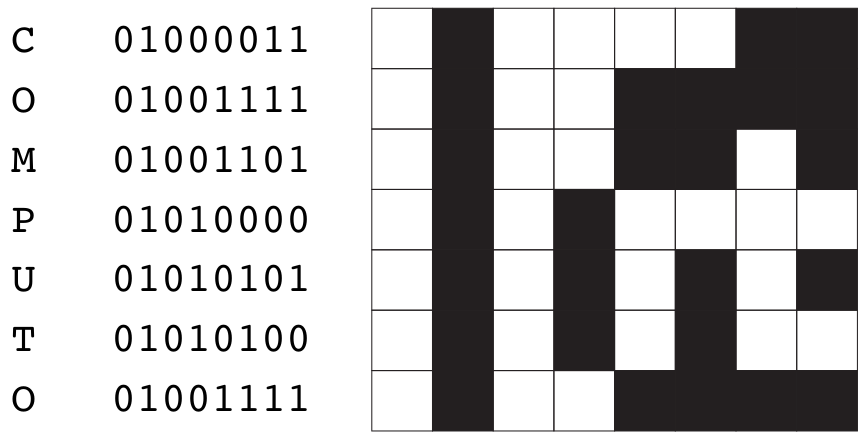About
Aims and scientific scope
Computo has been created in the context of a reproducibility crisis in science, which calls for higher standards in the publication of scientific results. Computo aims at promoting computational/algorithmic contributions in statistics and machine learning (ML) that provide insight into which models or methods are the most appropriate to address a specific scientific question.
The journal welcomes the following types of contributions:
- New methods with original stats/ML developments, or numerical studies that illustrate theoretical results in stats/ML;
- Case studies or surveys on stats/ML methods to address a specific (type of) question in data analysis, neutral comparison studies that provide insight into when, how, and why the compared methods perform well or less well;
- Software/tutorial papers to present implementations of stats/ML algorithms or to feature the use of a package/toolbox. For such papers we expect not only the description of an existing implementation but also the study of a concrete use case. If applicable, a comparison to related works and appropriate benchmarking are also expected.
Prospective authors willing to know whether their contribution falls into the scope of Computo are encouraged to contact the editor at contact@computo-journal.org. Please make sure to include the title and abstract of your work in your pre-submission enquiry.
An open journal
“Diamond” open access 
Computo is free for both readers and authors and adheres to the Diamond Open Access model: it is an open access journal, meaning that all content is freely available without charge to users or their institutions.
Content published under CC-BY license 
Computo articles are published under a CC-BY 4.0 license: Computo readers are allowed to download, copy, distribute, print, search, or link to the full texts of the articles, or use them for any other lawful purpose, without asking prior permission from the publisher or the author. The only requirement is to credit the authors, indicate the sources, and specify whether any modifications have been made.
The CC-BY license is therefore indicated on the published and readable versions of the articles, as well as in the git repositories distributing the source code of the articles and enabling the reproducibility of the analyses.
The source code of each article is based on various software and programs whose licenses (typically MIT, GPL, etc.) are specified where the code for this software is distributed. The authors commit to using content that complies with the CC-BY license of the articles and, more generally, to promoting the dissemination of open-source software, crediting the authors and contributors.
Computo does not ask for copyright transfer from authors: authors retain the copyright of their work.
This is in accordance with the Budapest Open Access Initiative (BOAI) definition of open access, as well as the DOAJ’s definition of open access, to whom we have submitted an application.
Open reviews
The reviews and the discussions they sparked between authors and their peers are open, i.e. visible to any reader after acceptance of the contribution. These reviews are published either as issues in the git repository associated with the publication, or directly available for consultation on Open review.
Note that Reviewers may choose to remain anonymous or not.
Reproducibility Policy
Numerical Reproducibility
The issue of reproducibility is at the heart of the Computo project. Therefore, the reproducibility of numerical results is a necessary condition for publication in Computo. To this end, we rely on a combination of notebooks, literate programming, virtual environments, and continuous integration.
Submissions must also include all necessary data (e.g., via Zenodo repositories) and code. For contributions featuring the implementation of methods or algorithms, the quality of the provided code is assessed during the review process.
For interested readers, more details are provided on this page about our expectations regarding reproducibility.
Medium- to Long-Term Preservation
To ensure that all published information remains accessible and usable over time:
- we tag every published article, including its virtual environment;
- we regularly run the workflow of each published article to check its medium- and long-term reproducibility;
- we archive all git repositories of published articles on Software Heritage
 .
.
Publication policy
We would also like to emphasize that publishing an article in Computo in no way prevents authors from depositing a version of their article (e.g., PDF) in an institutional repository (e.g., HAL or arXiv), which helps to preserve and disseminate scientific work and is fully in line with the journal’s policy and spirit. The only requirement is to fullfil the CC-BY license and to cite the original publication in Computo. This policy has been registered in the Mir@bel and Open Policy finder networks.
Plagiarism policy
Computo abides by the Committee on Publishing Ethics’s (COPE) guidelines listed below on plagiarism: - COPE Council. Suspected plagiarism in a submitted manuscript, Version 2, November 2018. - COPE Council. Suspected plagiarism in a published manuscript. Version 2. 2013.
Publisher
Computo is a journal of the French Statistical Society - ISSN 2824-7795
Contact
Enquiries can be sent to the Chief Editor, Julien Chiquet, through contact@computo-journal.org.
Thanks
We rely on Quarto, BibTeX and we drew our inspiration from Rescience-C and distill.pub among others.
About the logo
Computo’s logo has been designed by Loïc Schwaller.
